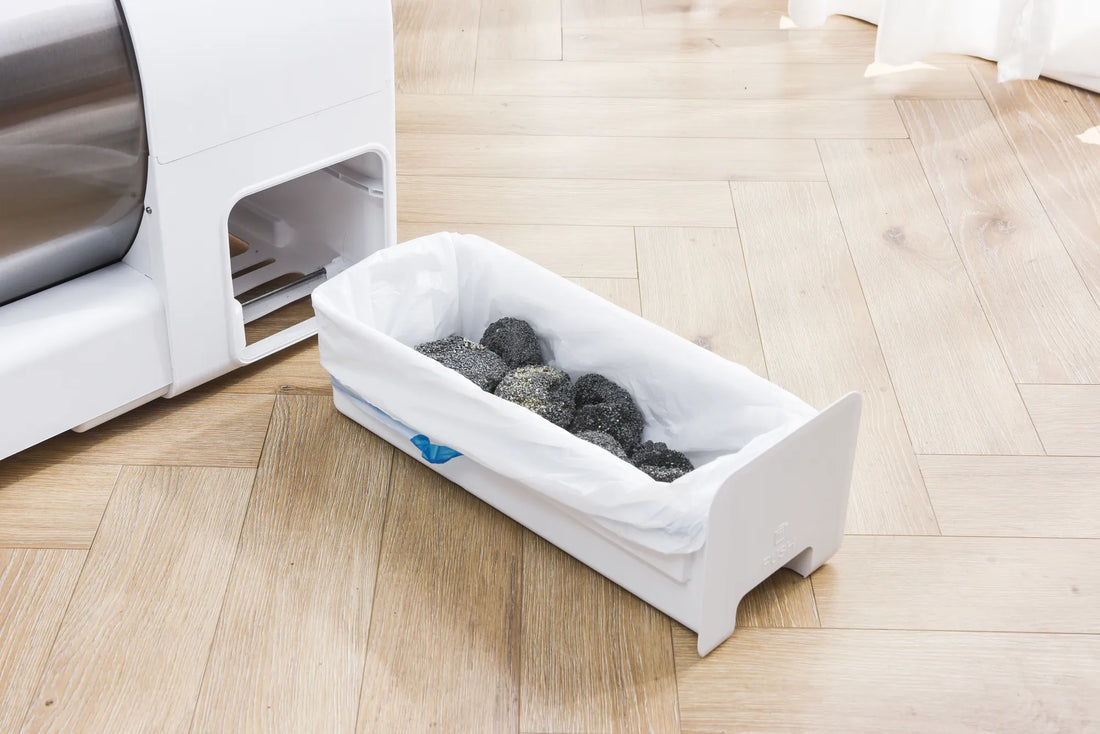If you've noticed your cat keeps going into the litter box more often than usual, it's natural to feel concerned. While frequent litter box visits can be a harmless quirk, they can also indicate deeper issues that require attention. Understanding the reasons behind this behavior is crucial to ensuring your feline friend stays healthy and happy.
Common Reasons Why Your Cat Keeps Going Into the Litter Box
There are several potential explanations for why your cat might be spending extra time in the litter box. Let's explore some of the most common causes:
1. Urinary Tract Infections (UTIs)
One of the most frequent reasons for increased litter box visits is a urinary tract infection. Cats with UTIs often feel the urge to urinate more frequently, even if only small amounts come out. Other symptoms may include straining, crying while urinating, or blood in the urine.
2. Feline Lower Urinary Tract Disease (FLUTD)
FLUTD is a broader term that encompasses various conditions affecting the bladder and urethra. It can cause discomfort, frequent urination, and even blockages, which are life-threatening if not treated promptly.
3. Stress or Anxiety
Cats are sensitive creatures, and changes in their environment or routine can lead to stress. This stress might manifest as increased litter box visits, as some cats find comfort in the familiar space.
4. Diabetes
Diabetes in cats can lead to increased thirst and urination. If your cat is drinking more water than usual and visiting the litter box frequently, it's worth considering this possibility.
5. Behavioral Issues
Sometimes, frequent litter box visits are purely behavioral. Your cat might be marking territory, seeking attention, or simply exploring the space.
How to Determine the Cause of Your Cat's Behavior
Identifying the root cause of your cat's frequent litter box visits requires careful observation and, in some cases, professional help. Here are some steps you can take:
1. Monitor Your Cat's Habits
Keep track of how often your cat uses the litter box, the amount of urine or feces produced, and any changes in behavior. This information can be invaluable when consulting a veterinarian.
2. Check for Physical Symptoms
Look for signs of discomfort, such as straining, crying, or blood in the urine. These symptoms often indicate a medical issue that needs immediate attention.
3. Evaluate Environmental Factors
Consider whether any recent changes in your home might be causing stress. New pets, moving furniture, or even a different brand of litter can affect your cat's behavior.
4. Consult a Veterinarian
If you're unsure about the cause or if your cat's behavior persists, it's best to seek professional advice. A veterinarian can perform tests to rule out medical conditions and provide tailored recommendations.
Practical Tips to Address the Issue
Once you've identified the likely cause of your cat's frequent litter box visits, you can take steps to address the problem. Here are some practical tips:
1. Provide a Clean Litter Box
Cats are naturally clean animals, and a dirty litter box can deter them from using it properly. Ensure the box is cleaned regularly and placed in a quiet, accessible location.
2. Offer Multiple Litter Boxes
If you have more than one cat, providing multiple litter boxes can reduce competition and stress. The general rule is to have one box per cat, plus an extra one.
3. Use the Right Type of Litter
Some cats are picky about the texture or scent of their litter. Experiment with different types to find one your cat prefers.
4. Reduce Stress in the Environment
Create a calm and secure space for your cat by minimizing loud noises, providing hiding spots, and maintaining a consistent routine.
5. Encourage Hydration
If your cat isn't drinking enough water, it can lead to urinary issues. Provide fresh water daily and consider using a cat water fountain to encourage drinking.
When to Seek Immediate Veterinary Care
While some causes of frequent litter box visits can be managed at home, others require urgent medical attention. Seek veterinary care immediately if you notice:
- Straining or inability to urinate
- Blood in the urine
- Lethargy or loss of appetite
- Vomiting or diarrhea
These symptoms could indicate a serious condition, such as a urinary blockage, which can be life-threatening if not treated promptly.
Preventing Future Issues
Prevention is always better than cure. Here are some strategies to help keep your cat healthy and reduce the likelihood of frequent litter box visits:
1. Regular Veterinary Checkups
Routine checkups can help detect potential health issues early, before they become serious problems.
2. Balanced Diet
Feeding your cat a balanced diet tailored to their age, weight, and health needs can prevent conditions like obesity and diabetes.
3. Mental and Physical Stimulation
Provide toys, scratching posts, and interactive playtime to keep your cat mentally and physically engaged. This can reduce stress and prevent behavioral issues.
4. Maintain a Clean and Safe Environment
Regularly clean your cat's living space, including their litter box, bedding, and food and water dishes. A clean environment promotes overall well-being.
If your cat keeps going into the litter box frequently, it's essential to take the time to understand the underlying cause. Whether it's a medical issue, stress, or a behavioral quirk, addressing the problem early can make a world of difference for your furry friend. By observing your cat's habits, consulting a veterinarian when needed, and implementing practical solutions, you can ensure your cat stays healthy, happy, and comfortable in their home.













